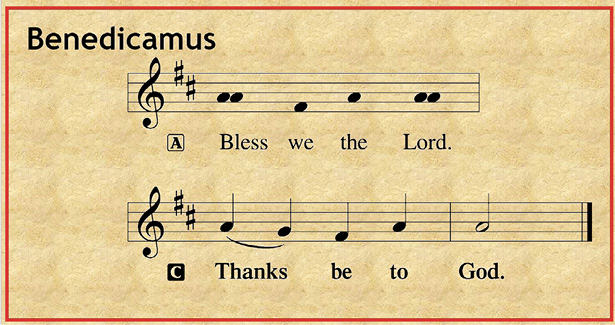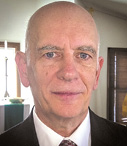Ever wonder why we Lutherans use the form of worship we do? In this series we examine the depth and meaning of the various elements of our Lutheran worship service.
Our lives in this fallen world are burdened with trials and troubles. We are threatened by dangers to both body and soul. We are grieved by the brazen wickedness of the unbelieving world. We are troubled by our own sins of thought, word, and deed. We see and feel our time in this life swiftly passing by.

But as we travel through the desert that is this world and this life, we have an oasis where there is cooling shade and refreshing water, a place where we can stop and rest a while before we continue our journey. It is the Sunday service in our churches. There we can find refuge from the noise of the world and listen quietly to God’s Word. There we can gather with our fellow travelers and join them in singing hymns to God and expressing our faith in the one true and living God. With all of this refreshment from the Lord Himself, we can go out again into the world with the peace of forgiveness and the joy of salvation.
In services where we take Holy Communion, Jesus gives us the additional refreshment of His own body and blood with the bread and the wine. He gives to each of us His personal assurance that He gave His body and shed His blood for the remission of our sins. Having received such great blessings in the Communion service, it is appropriate that we should hear from the pastor the Benedicamus, “Bless we the Lord,” and respond, “Thanks be to God.”
Benedicamus is a Latin word that means “we bless,” using the word bless in the sense of “to praise” or “glorify.” To bless the Lord is to exalt Him in our hearts and to speak of His righteousness and holiness, His love, and His grace in Jesus Christ.
The sentence “Bless we the Lord” occurs in the concluding verses of the books into which the Psalms are divided. For example, Book One ends with this doxology: “Blessed be the Lord God of Israel from everlasting to everlasting! Amen and Amen.” (Psalm 41:13) Book Two closes with this magnificent hymn: “Blessed be the Lord God, the God of Israel, Who only does wondrous things! And blessed be His glorious name forever! And let the whole earth be filled with His glory. Amen and Amen.” (Psalm 72:18-19) These expressions of praise serve as fitting conclusions to collections of the Psalms, for these are prayers that God Himself has given to us to enable us to call upon Him in all our needs and to praise Him for His unfailing mercy and help.
In the Benedicamus we follow the example of the psalmists by making some of the last words of our Communion services statements of praise and thanks to God. The simple statement spoken by the pastor and the response from the congregation should cause us to think back over the service that is ending and to marvel that our God should be so gracious as to invite us to worship Him and to speak to us words of comfort; that Jesus Christ should come to us with the very body and blood that He gave and shed for us on the cross to redeem us from our sins and give us eternal life.
The Benedicamus is an expression of praise that will continue into eternity. In the book of Revelation, we read of a vision granted to the Apostle John in which he heard “every creature which is in heaven and on the earth and under the earth and such as are in the sea. . . . saying: Blessing and honor and glory and power be to Him who sits upon the throne, and to the Lamb, forever and ever!” (Revelation 5:13)
is a retired pastor. He lives in Watertown, South Dakota.


